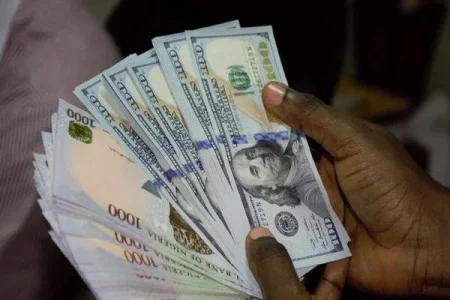
Amidst rising demand for foreign currency, the Nigerian Naira depreciates to 1,430 against the US dollar on the parallel market, signifying a 5.49% decline. Factors driving this include increased demand for travel and education. Analysts anticipate stability within the current band. Explore the implications of currency fluctuations on Nigeria's economic stability and policies.
The foreign exchange (FX) market witnessed a significant development as the Nigerian Naira exchanged at 1,430 against the US dollar on the parallel market, marking a 5.49 percent depreciation from the previous close of N1,350. Traders attribute the Naira's weakness to heightened demand for dollars for various purposes including business, tourism, health, and education.
At the Nigerian Autonomous Foreign Exchange Market (NAFEM), the Naira maintained stability, closing at N1,400.40 per dollar. However, intraday fluctuations saw the currency strengthen to N1,435 and depreciate to N1,300.40. Despite a decline in the volume of dollars supplied, the Naira remained relatively stable against the dollar at N1,380 on the parallel market.
Analysts at Afrinvest Securities Limited anticipate the Naira to continue trading within the current band, barring unforeseen shocks. The situation underscores ongoing concerns about Nigeria's foreign exchange policies and their impact on economic stability and investor confidence.




